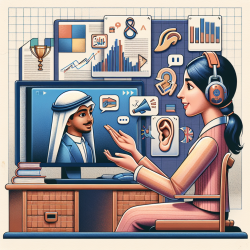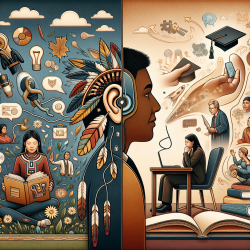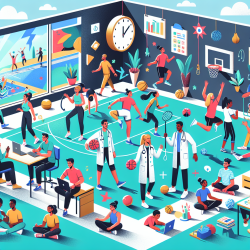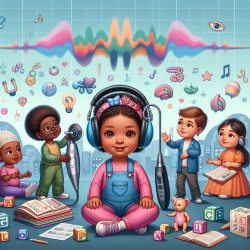The field of speech-language pathology is continually evolving, driven by research and the need to improve therapeutic outcomes for children with disabilities. The recent study, "Voices unheard, insights into the lives of people with disabilities: A needs assessment study," provides critical insights that can significantly enhance the skills of practitioners. This blog aims to distill key findings from the study and offer actionable steps for therapists to improve their practice.
Understanding the Challenges
The study identifies two main categories of challenges faced by individuals with disabilities: disability-related problems and potential solutions. The disability-related problems are further divided into five subcategories:
- Family Problems: Issues such as communication breakdowns, psychological stress, and economic burdens are prevalent among families with disabled members.
- Therapeutic Problems: These include a lack of understanding of patient needs, insufficient time per patient, and inadequate support systems for therapists.
- Psychological Problems: Individuals with disabilities often face emotional trauma, low self-esteem, and social isolation.
- Academic Problems: Disabled students encounter barriers such as poor physical design of facilities and inadequate support systems in educational institutions.
- Social Problems: Societal segregation, insufficient government support, and negative perceptions of disability contribute to the challenges faced by disabled individuals.
Implementing Solutions
The study suggests several solutions to these challenges, categorized into educational, therapeutic, social, research, and reintegration strategies. Here are some actionable steps practitioners can take:
Educational Solutions
- Integrate courses on communication skills, empathy, and professional ethics into the curriculum for rehabilitation students.
- Develop simulated clinic environments to provide hands-on experience.
- Enhance training programs to include real-life experiences of disabled individuals.
Therapeutic Solutions
- Adapt treatment guidelines to local contexts and cultural settings.
- Ensure psychiatric evaluations and necessary counseling for patients.
- Establish dedicated rehabilitation centers for different types of disabilities.
Social Solutions
- Promote collaboration between rehabilitation faculties and disability associations.
- Raise public awareness about the challenges faced by disabled individuals.
- Implement inclusive urban design to improve accessibility.
Research Solutions
- Conduct in-depth studies to identify the specific needs and challenges of disabled individuals.
- Modify educational curricula based on research findings.
Reintegration Strategies
- Foster a sense of usefulness and boost morale among disabled individuals.
- Enhance their motivation and involvement in community activities.
Encouraging Further Research
While the study provides a robust framework for addressing the needs of disabled individuals, continuous research is essential. Practitioners are encouraged to engage in ongoing research to refine therapeutic approaches and improve outcomes.
To read the original research paper, please follow this link: Voices unheard, insights into the lives of people with disabilities: A needs assessment study.










